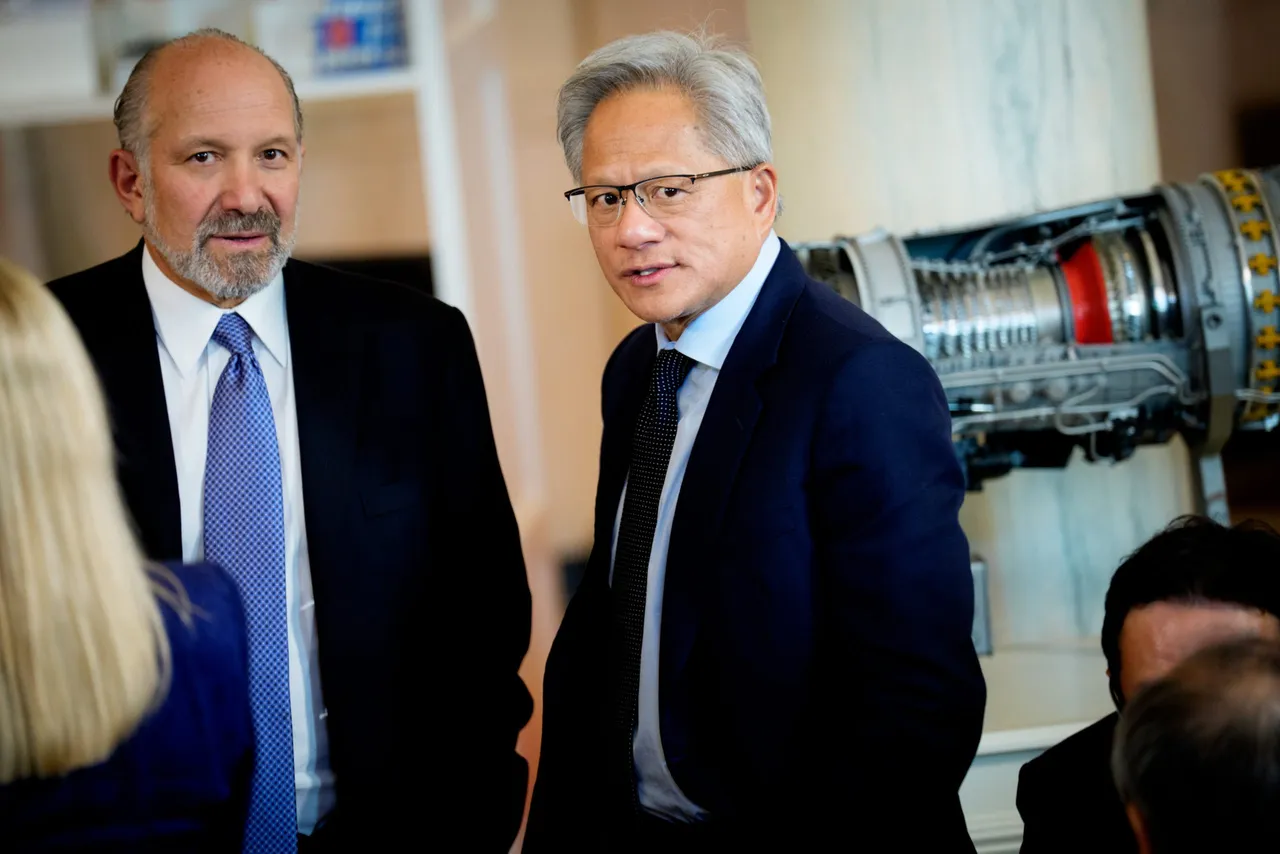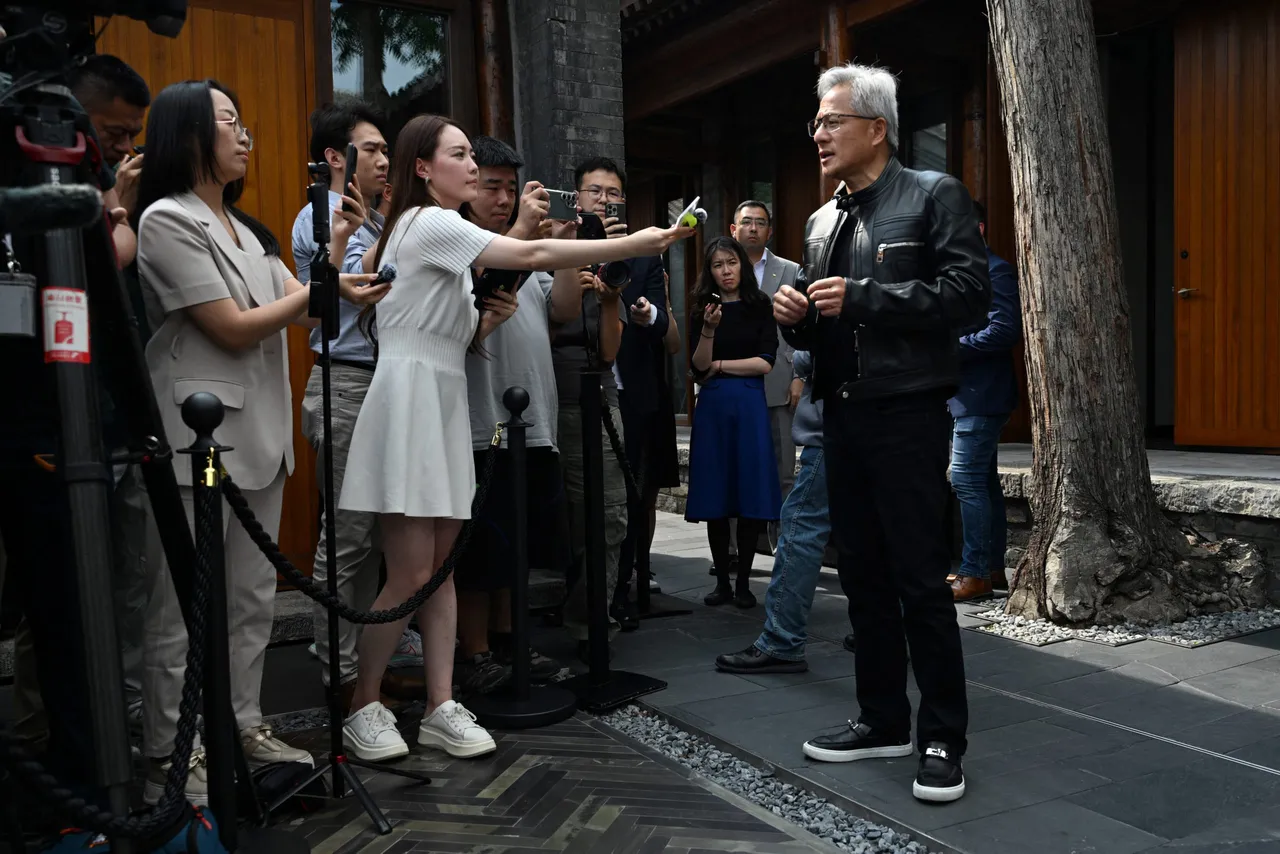The Trump administration has rolled back export controls on advanced AI chips to China, a move that some security experts warn could be a costly miscalculation.
Amid ongoing trade talks with Beijing, the Trump administration reversed course on export restrictions targeting Nvidia’s H20 artificial intelligence (AI) chips as part of a deal that will see the government take a portion of the profits. While President Donald Trump has billed the move as a great commercial transaction, critics say it risks trading away America’s technological edge — and long-term national security — to China for short-term economic gains.
“The president is trying to win a trade dispute with China, but not necessarily a Cold War with China, and I think that’s the fundamental issue the administration is bumping into,” Michael Sobolik, a senior fellow at Hudson Institute, told the Daily Caller News Foundation. “The calculation that there is going to be a winner and a loser is certainly understood in Beijing, but not widely understood in Washington.” (RELATED: How America Can Break Free From China’s Minerals Stranglehold)

WASHINGTON, DC – APRIL 30: Commerce Secretary Howard Lutnick (L) and Nvidia CEO Jensen Huang (R) speak in the Cross Hall of the White House before an event on “Investing in America” on April 30, 2025 in Washington, DC. (Photo by Andrew Harnik/Getty Images)
Nvidia has argued that allowing its chips to be exported to China and around the world will help establish American AI and technology as the global standard by fostering dependence on U.S. products. Trump was persuaded that H20 is an outdated chip for which China already has similar alternatives, after Nvidia CEO Jensen Huang lobbied the White House to lift the restriction.
“Two things can be accomplished at the same time: the Administration can find novel ways of raising historic revenue for the federal government and safeguard our national security. The H20 chip is far from the most advanced semiconductor technology developed by American companies, and homegrown competitors to the H20 chip are already available in China,” White House spokesperson Kush Desai told the DCNF. “While the Biden administration let these chips to flow freely to China without any due diligence, the Trump administration continues to maintain an export license requirement for the H20 to ensure that chip sales do not undermine national security.”
However, some analysts argue that the Trump administration has underestimated the chip’s value to China.
“It’s true that it’s not Nvidia’s most powerful chip, but the exact type of chip that is used for inference — the process that allows AI models to make sense of user queries more effectively and faster,” Jack Burnham, a research analyst in China and AI-related matters for the Foundation for Defense of Democracies, told the DCNF. “And it’s that capacity that China’s looking for. The H20 is geared to make those models more economically and militarily viable than they would be otherwise.”
Nvidia’s deal with the Trump administration to resume exports of its H20 chips is a unique one, giving the federal government a 15% cut of the chipmaker’s sales to China. Trump has suggested that he might be open to allowing exports of Nvidia’s far more advanced Blackwell chip to China in exchange for 30-50% of the revenue.
The legality of the deal has also been called into question as the government’s 15% cut of the profits resembles an export tax, which is unconstitutional.
“It’s unprecedented to have any sort of a deal where the federal government requires a share of the profits in order to allow a U.S. company to export something. That’s not normal,” said Sobolik. “It gives the executive branch an interest in selling very precious American AI technology to China, and that’s a really bad incentive to have in place, not only because the Chinese Communist Party (CCP) is America’s most dangerous enemy today, but also because the [People’s Liberation Army] has tried and is trying to get H20 chips for its AI systems.”
Even within Republican ranks, the decision to lift export restrictions on the AI chips has sparked controversy, with Rep. John Moolenaar, the Republican chair of the House Select Committee on China, raising concern that the move could enhance China’s AI capabilities. Some national security officials within the administration are also reportedly considering resigning over the move, according to Financial Times. (RELATED: EXCLUSIVE: Trump’s Energy Agenda Can Help US Beat China In Crucial Tech Race, Oil Industry Leader Says)

TOPSHOT – Nvidia CEO Jensen Huang speaks to journalists as he arrives for a press conference at a hotel in Beijing on July 16, 2025. (Photo by ADEK BERRY/AFP via Getty Images)
“We follow rules the U.S. government sets for our participation in worldwide markets. While we haven’t shipped H20 to China for months, we hope export control rules will let America compete in China and worldwide,” a Nvidia spokesperson told the DCNF.
After the Trump administration pledged to lift export restrictions on H20 chips in July, Beijing summoned Nvidia representatives to discuss concerns about perceived security risks or “backdoor access” that could allow remote control of its chips. The Chinese government has also reportedly instructed its firms not to use Nvidia chips, particularly for government or national security-related purposes.
“I think the timing is revelatory. It wasn’t until the administration granted a license for Nvidia to sell its H20 chips to China that suddenly Beijing became very concerned about security issues with these chips,” said Sobolik. “I think they’re trying to shake Nvidia down. I’m sure they’re trying to get more out of the deal, whether it’s to get more access to the technology behind the chips or access to higher-grade Nvidia chips.”
Experts also warned that deals motivated by short-term commercial gains are shortsighted, given China’s long-standing track record of intellectual property theft.
“There’s a large and growing market for these technologies, but that market doesn’t need ot include China,” said Burnham. “It’s quite clear that while there may be a short-term gain in selling to China, once that intellectual property is lost, it comes with significant long-term strategic and economic downsides.”
Peter Mattis, president of the Jamestown Foundation, also warned that lifting export controls on chips could risk emboldening China, which has ambitions that extend beyond AI dominance.
“I’m concerned that Beijing sees an opening, that, ‘if they’re willing to violate this principle for the sake of this technology — that may not be the cutting edge, but is pretty good for some other things — then how far can we push?’” Mattis told the DCNF.
Mattis, along with Sobolik, was among the signatories of an open letter from China watchers urging Commerce Secretary Howard Lutnick not to lift the export restrictions.
“The CCP has ambitions to remake the global order, and they want leadership in the key scientific and technological advances of the new age,” said Mattis. “These are not short-term goals, but these are things we have to take into account with every bargain or interaction you have with the CCP.”
Sobolik said the Trump administration’s approach to Nvidia reveals the “duality” of its stance toward China. In addition to the Nvidia deal, Sobolik criticized the administration’s reluctance to enforce the TikTok ban, while commending aspects of Trump’s ongoing global trade negotiations, which have compelled the U.S. and other nations to decouple from China in critical supply chains.
Trump stated in December 2024 that “China and the United States can solve the problems of the world,” but Sobolik said that is “not how the CCP views the relationship.”
“In their public diplomacy, they will talk about win-win cooperation and that China doesn’t want to supplant or replace the U.S., but they’re lying when they say that,” Sobolik said. “They are preparing to fight and win a war if it comes to it, and they don’t view a future that they want or need politically as a future that is compatible with U.S. leadership.”
The Department of Commerce did not respond to the DCNF’s request for comment.
All content created by the Daily Caller News Foundation, an independent and nonpartisan newswire service, is available without charge to any legitimate news publisher that can provide a large audience. All republished articles must include our logo, our reporter’s byline and their DCNF affiliation. For any questions about our guidelines or partnering with us, please contact licensing@dailycallernewsfoundation.org.





![Gavin Newsom Threatens to 'Punch These Sons of B*thces in the Mouth' [WATCH]](https://www.right2024.com/wp-content/uploads/2025/08/Gavin-Newsom-Threatens-to-Punch-These-Sons-of-Bthces-in-350x250.jpg)
![ICE Arrests Illegal Alien Influencer During Her Livestream in Los Angeles: ‘You Bet We Did’ [WATCH]](https://www.right2024.com/wp-content/uploads/2025/08/ICE-Arrests-Illegal-Alien-Influencer-During-Her-Livestream-in-Los-350x250.jpg)








